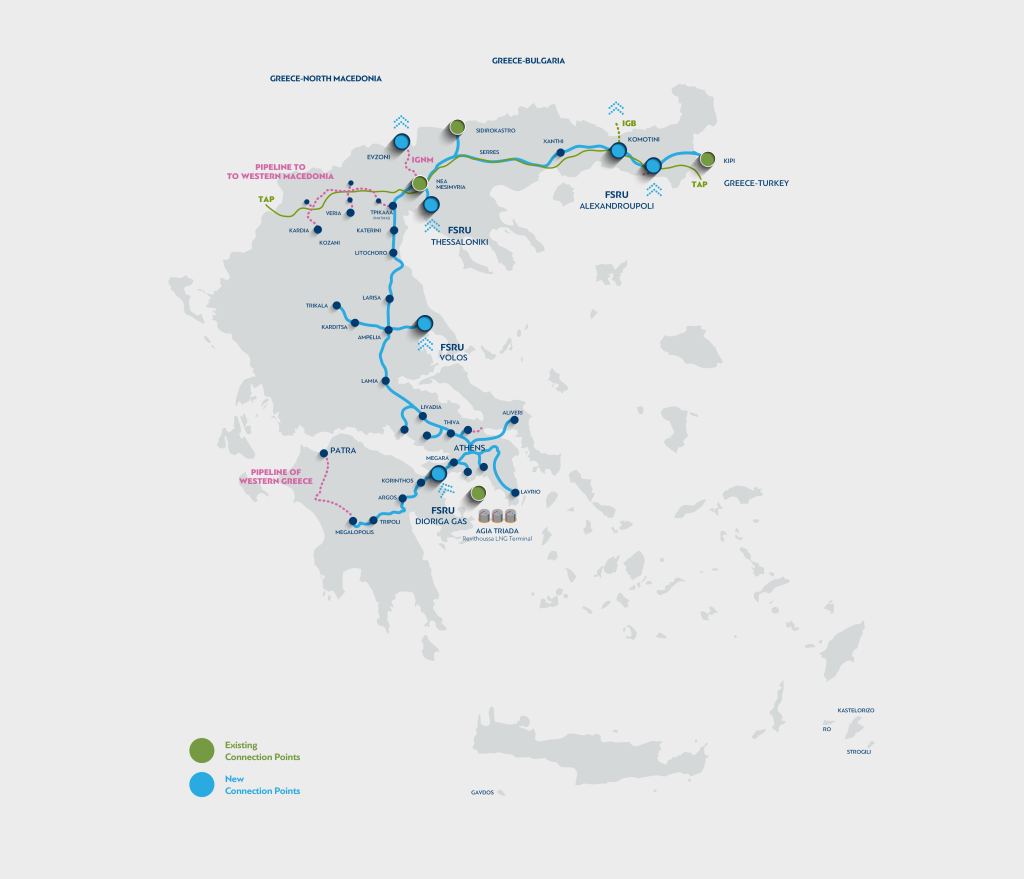The initial, non-binding phase of DESFA’s Market Test for the expansion of the National Natural Gas System recorded a significant surge in capacity demand for importing and exporting natural gas.
A total of twenty-seven (27) companies have submitted requests for capacity allocation, ranging from the year 2024 to 2050. Among these proposals, 17 originate from international companies, primarily from Central and South-Eastern Europe (including Bulgaria, Romania, Austria, Hungary, Slovakia, Germany, Cyprus, North Macedonia), as well as the USA. This emphasizes Greece’s enhanced position on the energy map of the wider region. The remaining 10 requests are from prominent Greek companies. Notably, around 40% of the submissions were made by companies that are not yet active in the Greek Natural Gas market.
Significant interest was recorded both for the existing entry points (Agia Triada, Nea Messimvria-TAP, Sidirokastro, Kipoi), and for the new interconnection points of the NNGS, such as Amfitriti (FSRU Alexandroupolis), Komotini (IGB), Evzoni (Interconnection Pipeline of Greece – North Macedonia), as well as for the under development FSRUs in Volos, Thessaloniki and Corinth.
DESFA is currently assessing the non-binding offers to draft the Demand Assessment Report for Increased Capacity. Subsequently, a detailed Project Proposal will be prepared to identify the required investments for expanding the National Natural Gas System (NNGS), which will undergo a public consultation, allowing interested parties to provide their feedback before it is submitted for approval to RAAEY.
The binding phase of the Market Test is anticipated to commence in 2024 and will be completed with the allocation of capacity to the companies that have submitted binding offers and fulfil the defined criteria throughout the process.
Through the implementation of the Market Test, DESFA seeks to achieve the optimal design, from a technical and economically efficient aspect, of new infrastructures that will be seamlessly integrated into the network. This approach ensures that the demand and needs of users are efficiently met, thereby enhancing security of supply and solidifying Greece’s position as an energy gateway for Southeast Europe.








